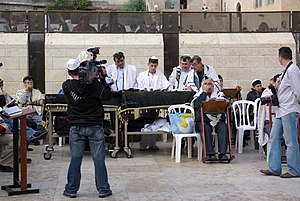Jewish date: Jewish date: 19 Kislew 5771 (Parashath Wayyeshev).
Today’s holidays: Friday of the Thirty-Fourth Week of Ordinary Time (Roman Catholicism), Feast Day of St. Hugo Ball (Church of the SubGenius), Eid al-Ghadeer (Islam), Day of the Covenant (Bahá’í Faith).
Note: Currently I am working with an unreliable Internet connection, so I plan on keeping my posts short for the moment to increase the chances that they actually get through.
If you are expecting me to post on religious oddities so soon after moving to Israel, you are going to be disappointed. Ra‘ananah is not a major religious center, and so far what I have seen in what might be called “aberrations” have not been spectacular.
Given this situation, today’s topic is an article by Rav Shmuely Boteach, “The Morality of Gay Adoption”. Just about anything concerning homosexuals is a controversial topic in the United States, as the practice of homosexuality is forbidden in many religions. The immorality of homosexuality itself is not questioned or discussed in this article. Rather there is an excellent point which merits attention: doing one thing which is wrong does mean one should not do something else which is right. Nothing about being a homosexual prevents one from being an upstanding moral person in all other matters. And it is in the best interests of children to have loving homes. One may not consider homosexuals to be the best role models for children, but let’s face it: none of us is truly ideal. We are all imperfect, even the most virtuous among us, yet no one suggests that people should not raise children due to being imperfect. Why should we be opposed to people doing anything good in this world?
Peace and Shabbath shalom.
Aaron



